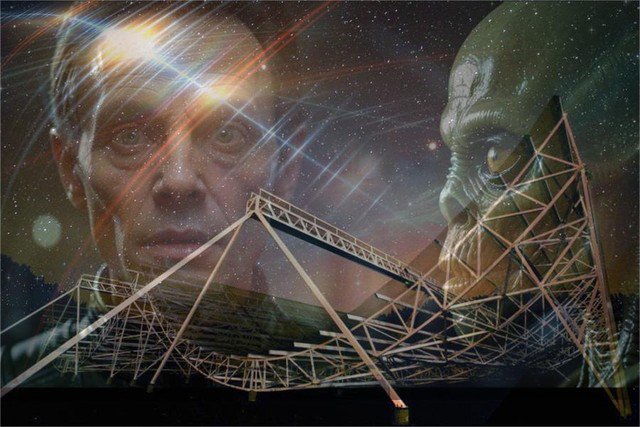Why haven't we met aliens yet?
'Where is everybody?' the famous 19th century physicist Enrico Fermi said, summarizing the 'Fermi paradox' in the search for aliens.
The "Fermi Paradox" regarding aliens argues that if life emerged here, on Earth, and the universe tends not to do things just once, then life must have emerged elsewhere as well.
Accordingly, the universe should now be filled with civilizations with advanced technology capable of conducting space travel. Yet clearly humanity has not found them. Nor has anyone found us.
NASA's Voyager spacecraft, carrying two golden records recording messages from Earth, have left the far solar system after nearly half a century of travel, but no visitors have yet met them.
Advertisement

Advertisement
Aliens may be similar or very different from us - Photo: CHIME/AI
Writing on The Conversation, Professor Chris Impey, a famous astronomer from the University of Arizona (USA), said that one of the big reasons why humanity has not found extraterrestrial life is that we do not know their true identity, or theirs.
'But what if life could form in other ways? How do you look for alien life when you don't know what alien life looks like?' Professor Impey pointed out.
These questions have preoccupied astrobiologists for many years, as they have attempted to derive general rules governing the emergence of complex physical and biological systems on Earth and beyond.
Since the first exoplanet was discovered in 1995, more than 5,000 exoplanets, or planets orbiting other stars, have been found. Many of them are small and rocky, like Earth, located in the habitable zones of their stars.
Other studies also predict that there must be about 300 million habitable places in our Milky Way galaxy, which are exoplanets, their moons, dwarf planets.
The uncertainty for researchers begins with the definition of life.
NASA defines life as 'a self-sustaining chemical reaction capable of Darwinian evolution.' That means organisms with complex chemical systems evolve by adapting to their environment.
Darwin's theory of evolution also says that an organism's survival depends on its adaptation to its environment.
So any creature that emerges on a world other than ours would be very different from us. If it evolved into a humanoid form, it would likely be very different from us, and much stranger than the aliens in movies. So perhaps what needs to be done is to try to analyze and predict how different, if any, other environments might make life. There is also another famous argument against Fermi: the 'great filter' argument, which economist Robin Hanson detailed in 1996.
He believes that very few civilizations in the universe have reached a stage of space travel advanced enough to meet civilizations in other star systems.
One such example is us. Several NASA spacecraft have escaped the Solar System, but they are only wandering around the edges of our 'home,' far from reaching the nearest star system. If there is an advanced civilization out there—advanced enough to pass by and encounter NASA's Voyager Gold Record pair, for example—they would need to be technologically far ahead of us, perhaps by centuries.

Saved post successfully
You can review saved articles on the Saved Articles page.
Agree
You should read it
- ★ The project to search for alien life stopped working after 20 years
- ★ NASA will reveal new discoveries about extraterrestrial ocean worlds tonight
- ★ 'Planet Hunters' are looking for signs of extraterrestrial life around nearby stars
- ★ Countries are stepping up efforts to search for extraterrestrial life
- ★ 10 interesting secrets about Maya civilization